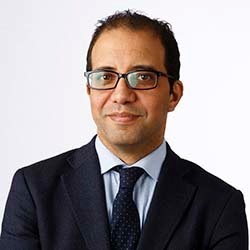Armenia
The Context
Armenia is a lower middle-income country which became independent in 1991 and is in the process of transition to a fully democratic market economy. The country experienced rapid economic growth and poverty reduction in the early post-independence period but was severely impacted by the 2008 global financial crisis which was followed by a period of slower growth and population decline. Almost a million Armenians (29 per cent) remain poor, a third of these being very poor and extremely poor (below the food poverty line). Almost a third of the total poor live in rural areas. Rural women and youth are over-represented among the poor.
Agriculture contributed about 15 per cent of Armenia’s GDP in 2017 and employs 35 per cent of the workforce. The sector is predominantly smallholder-based with 360,000 agricultural holdings with an average of 1.5 hectares.
The greatest challenge is how to transition from a fragmented subsistence-based to a profitable and competitive export-oriented agricultural sector; and at the same time address social needs of poverty reduction, food and nutrition security and unemployment.
The Strategy
In Armenia, IFAD works to support the Government’s inclusive transformation vision for improved rural livelihoods. IFAD works towards this objective through the creation of agribusiness partnerships for integration of smallholders in resilient value chains and enhanced enabling environment for rural commercial development.
Farmers are increasingly interested in market opportunities. So IFAD has broadened its focus from food security, often providing small loans to help subsistence farmers produce a surplus for sale.
IFAD loans also support diversification of the non-farm rural economy. Our investments encourage poor people to start businesses, and in highland and border areas we target small- and medium-scale traders, processors, suppliers, and service providers who link and support farmers and markets.
Key activities include:
- increasing production and productivity where returns are highest, using private-sector development as the main engine for poverty reduction;
- supporting diversification of the non-farm rural economy;
- encouraging poor people to start small and medium-size enterprises;
- supporting government efforts to expand business opportunities for women in rural areas; and
- building and strengthening local institutions by making grassroots groups responsible for implementing and managing activities.
New IFAD investments in Armenia favour effective responses to rapid changes in the business, financial and agricultural sectors as the economy continues to recover.
Country Facts
In 2016, 37 per cent of Armenia’s 2.9 million people lived in rural areas, and one third in the capital city of Yerevan.
Agriculture generated around 15 per cent of GDP in 2017 and is the main livelihood for rural communities.
Farming employs more than 35 per cent of Armenia’s workforce overall and 65 per cent in rural areas.
